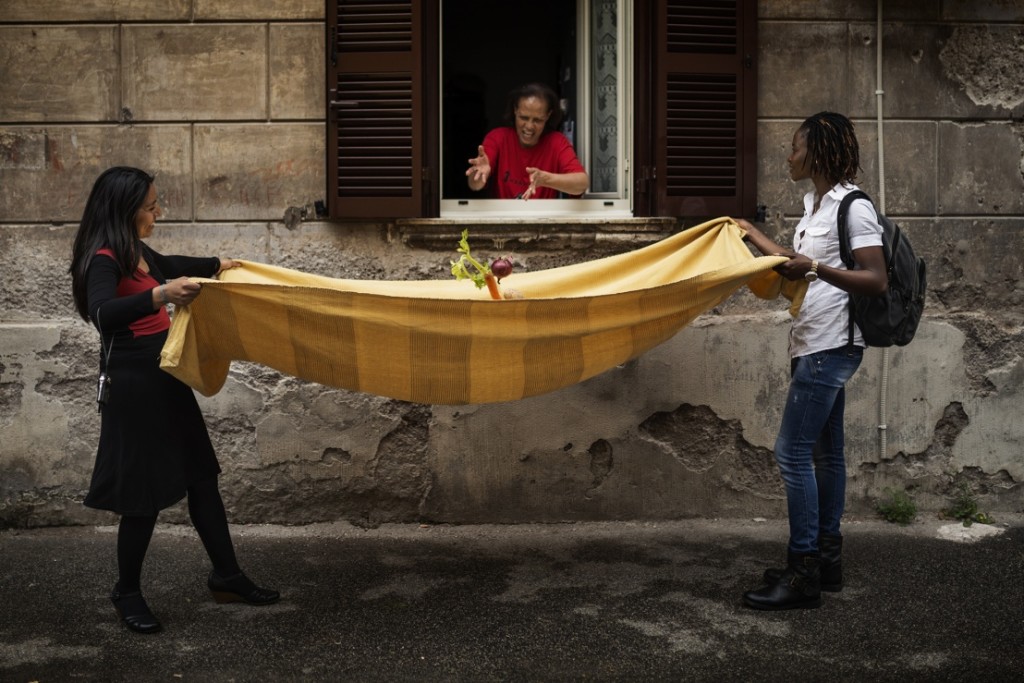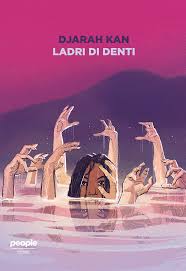“America, We Call Your Name” – Poetry Anthology Has a New Life on Video and in the Schools
This will introduce you to our poetry anthology and to its companion video of poets reading selected poems from the book, which you will find in this article, along with an email by poet and anthology contributor Dante di Stefano.
Following the election of Donald Trump in the fall of 2016, poets of Sixteen Rivers Press, in California, decided to publish this anthology in response to the outrage, fear, and anger that so many people felt. The opening lines of Jane Hirshfield’s poem, the last one in the book, says it all: “Let them not say: we did not see it/We saw.//Let them not say we did not hear it./We heard.//”
Five members of the press created the anthology, with Murray Silverstein as our editor-in-chief. The title of our book is America, We Call Your Name: Poems of Resistance and Resilience. Resistance, because in confronting the racism, sexism, contempt for immigrants, and stupidity about Covid, we can agree with Frank Bidart’s lines: “Every serious work of art about America has the same/ theme: America// is a great idea: the reality leaves something to be desired.” And we included the word Resilience with a nod toward poets such as Lucille Clifton, who wrote,”come celebrate/with me that every day/ something has tried to kill me/and has failed.”
Holding a widely-advertised contest, we received over 2000 poems, then argued, discussed, and voted on them. Having also invited Sixteen Rivers Press members to contribute favorite poems, we added works from, among others, Shakespeare, Milosz, Neruda, Emily Dickinson, Szmborska, Heaney, a few from ancient China, Blake and Robert Hayden, Cavafy, and Dante. One poem by Claudia Rankine sums up what America has been like this year: “because white men can’t/police their imagination/black men are dying.”
We received a grant to publish the anthology, and to develop a protocol so that it can be used in schools, colleges, and prison reading groups, the grant allowing us to send books to teachers. This summer, with another momentous election looming, we created a one hour video, helped by a young film maker, inviting nine poets from the anthology to create their own videos in which they read their poem from the book, plus another anthology poem that they loved. We were pleased to hear Dante de Stefano read these lines from Bei Dao: “A word has abolished another word/a book has issued orders/to burn another book.”
An additional grant will help get the anthology and the video to more students. Sixteen Rivers Press is a small, non-profit, northern California press, in business for over twenty years, publishing 2 to 3 poetry books a year. We survive through book sales, donations, and grants to help realize our vision of bringing poetry to more people. We have over a hundred copies of the anthology available, and the grant may cover shipping to Italy, if you would like to have them. We are working to create an e-book, which we hope to have available next summer.
All nine poets in the video are widely published in the US, and their work can be found online. Let me highlight a few of them. The first reader, Joshua Bennet, teaches at Dartmouth College and has given great talks on Black Lives Matter. Mai Der Vang, whose family emigrated from Laos, won the prestigious Walt Whitman Award for her first book. Dante De Stefano teaches high school, uses our anthology, and his photos of his students reading and responding to the book round out the video. Camille Dungy, who wrote the forward to our book, has published several books of poetry. Here are a few lines from her poem: “Few things bring us together more than our need to spell out/ our intentions, which helps explain the early 20th century/Chinese prisoners who scratched poems into the walls on Angel Island,/and why a Polish detainee wrote his mother’s name in 1922. I was here,/they wanted to tell us, and by here they meant the island/and they also meant the world….”
Here is the direct link to the video: https://www.youtube.com/watch?v=r24pBvmRzsM&t=27s. Find out more about Sixteen Rivers press here: https://sixteenrivers.org/. We hope that you enjoy the anthology, if we can ship you some copies, as well as the e-book version when we create it. Please share these links to the video and to the press with anyone who might be interested.
I end here with a few lines from the Neruda poem we have in the anthology, “In the blue hour of eating,/the infinite hour of the roast,/the poet abandons his lyre,/takes up his knife and fork….//Hunger is a cold fire./Let us sit down soon to eat with all those who haven’t eaten….”
Email by poet Dante di Stefano, a contributor to the anthology who is currently using it in the school.
Thanks for this email and for all the work you’ve done on this anthology. The project continues to inspire me and I am so grateful to be a part of it.
Last year, I used the anthology in two Creative Writing classes. Both classes were senior electives. One class has 24 students in it and one class has 18. The students ranged from honors and AP level kids to students who were in Bridges (a program for the developmentally disabled), so it was a real mix. Some kids from those classes ended up going to ivy league schools this year, some are going to community college, and some are working in the service industry or a trade. This demographic diversity will give you some idea of why I structured their engagement with the text the way I did.
I introduced the anthology. I talked a little bit about the anthology’s project as a whole. We read Camille Dungy’s introduction together and discussed it. This led us into a discussion of contemporary politics and poetry. It was a lively and productive discussion. Since this is upstate New York, about half of the kids are from conservative or republican families. I was a little worried prior to the discussion about how it would unfold, but thankfully the students remained open and respectful and whenever someone said something that was offensive (one kid went down a digression that led to an “all lives matter” type of sentiment) we were able to reign things in and proceed reasonably. This was the first day.
On the second day, I gave them the attached directions and had them browse through the anthology. They were all really engaged and in one class in particular they really loved that I had a poem in the anthology (which I read for them and talked about after they noticed it). I told them to look at the titles, flip through the book, and read through at least ten poems. They then had to pick the poem they liked best, or were most drawn to, for whatever reason, and complete the activities on the direction sheet. I called the activity an “Illuminated One-sheet” and the idea is for them to have a deep critical engagement with a poem and illustrate that engagement with a kind of Blakean artifact.
Many students took pictures on their phones of poems in the book they were interested in, so that they could read them on their own outside of class (I needed to keep the books in the classroom because I was using them in two classes). I let three of the lower level students and two of the higher level students take the anthology home with them, though. The next three days in class the students worked on their Illuminated One-sheets. Lastly, during a separate class day, I had each student read the poem they chose and talk informally about their experience with it. We did this in a circle, and, again, this led us into some fruitful discussions. The lesson took six days total, and I felt it went really well.
I had intended to use the anthology more when we were interrupted so rudely by the coronavirus. I still want to use the anthologies this year, but there are logistical problems with handing out hard copies that haven’t been sorted out yet (we have a third of our students completely remote and then half of the remaining students coming Monday and Tuesday, and the rest coming Thursday and Friday). I’m not sure if I will be able to use the anthology this year, but I am working on figuring it out; I’m basically changing everything I have done for the past fifteen years, and trying to learn all of the new technology.
One thing that I wanted to do with the students was to have them make a cento from lines that stood out to them in the book. There is that one cento in the anthology, so that poem would be a good starting point for approaching the history and mechanics of the cento. There is really so much that could be done with the book.
I hope this helps a little bit. If you have any more questions, or points of clarification let me know. It’s so nice to meet another one of the amazing editor poets from Sixteen Rivers Press!





















































